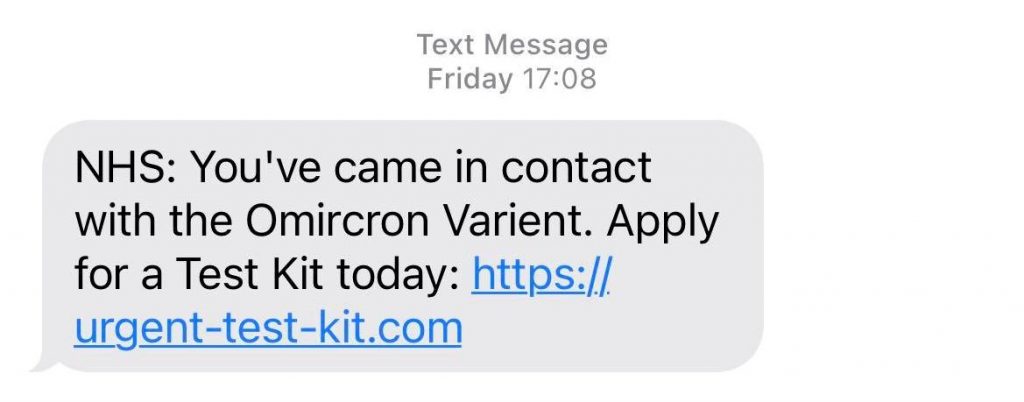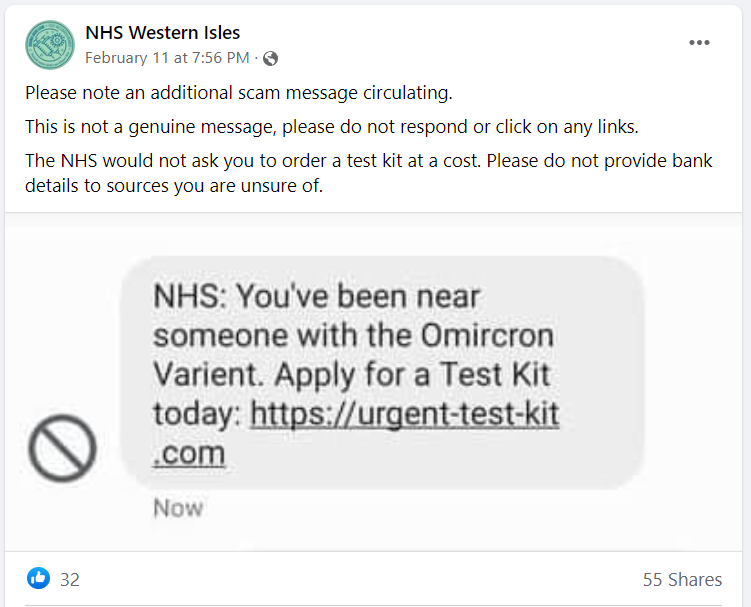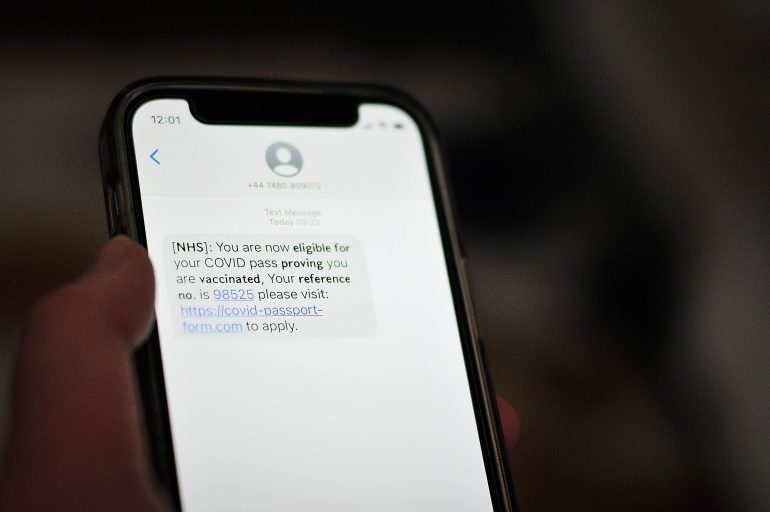Criminals use PCR test fears to target Cardiff people using links resembling official Covid website
SCAM text messages pretending to be from the NHS have been received by people across Cardiff.

The messages say the recipient has come into contact with the Omicron variant (misspelt as Omircron) and directs them to a website imitating the real NHS website.
The website incorrectly claims that the Omicron variant will not show up on normal tests and that a specific Omicron test kit must be ordered from the website. This is not true and existing test kits can detect Omicron, as with any strain of Covid.
People who received the messages say they were told to enter their bank details to pay for postage for a PCR test.
Jan, 58, from the Leckwith area received the text early on Saturday morning. She said: “I thought it was a scam straight away as I haven’t done the test and trace for quite a while.
“I think it’s disgusting and obviously some people are vulnerable and will pay for tests and panic.”
Steve Searle from Cyncoed received a similar text on Friday night. “The spelling and grammar was a giveaway and the NHS are so busy I can’t imagine they would have the time to send out rubbish like this. They have the app to track and trace,” he said.
An almost identical text message, repeating the misspelling of Omicron and linking to the same website, was reported in the Outer Hebrides on Friday.

Another scam telling people they had come into contact with Omicron was reported by the Independent in January. It linked to a different website which was taken down and its domain was set to redirect to the actual NHS website.
Fraudsters have been updating their tactics to prey on people’s worries about Covid-19.
Cardiff student Rowenna Hoskin, 21, almost fell for a scam text pretending to be from the NHS last year.
“I think the only reason I got caught by it was because it did seem real and it was a text whereas if it had been an email I wouldn’t have looked twice at that. But the NHS does text you,” she said.
Ms Hoskin entered her bank details on the website she was directed to but no money was taken, probably because she quickly cancelled her cards.
She only realised it was a scam after showing the text to an NHS nurse who recognised the scam.
“If I hadn’t sent a screenshot, I would have been fully scammed. I wouldn’t have thought twice about it. ‘I felt a bit violated a bit stupid,” she said.
Some scammers can disguise their mobile numbers so the texts appear to come from an official source.
A Department of Health spokesperson said: “Whilst it is possible for criminals to fake official phone numbers, they cannot fake official website addresses.
“We would encourage anyone with concerns about a phone call, text message or email they have received, in relation to test and trace, to check the website address being provided to you carefully.”
The NHS website states: “You will never be asked to dial a premium rate number, make a payment, provide your bank details, or provide other personal information such as your social media identities or login details.”
- If you believe you have been sent a scam text, you can report it by forwarding the message to 7726 or sending a screenshot to report@phishing.gov.uk.



